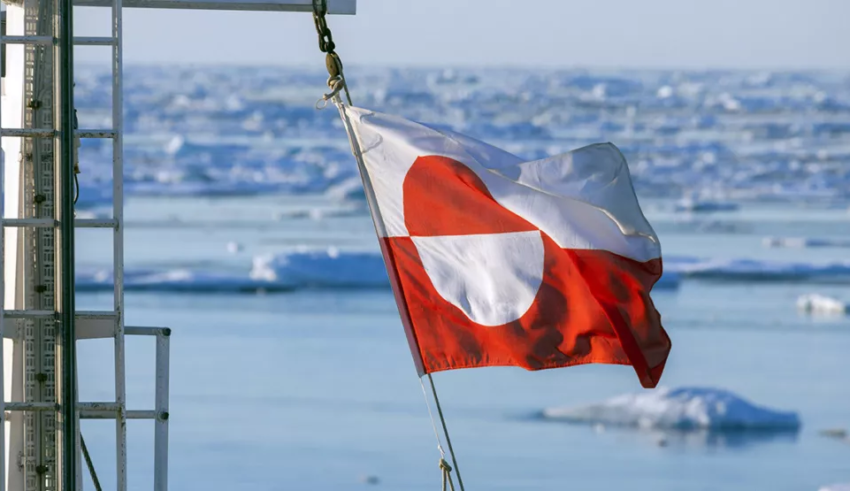
As climate change worsens, the geopolitical competition in the Arctic is simultaneously increasing. With countries such as the US, China etc constantly competing over the exploitation of the territory’s resources (oil, gas reserves, crucial rare earth minerals…) while the ice melts, many believe that an independent Greenland could have significant importance and a decisive role to play in the future.
Despite being part of Denmark since 1721, and achieving autonomy in 1979 a draft constitution from this past April has indicated the possibility of a separation. While having gained autonomy in the late 70s, Greenland still relies on Denmark for financial support, defense and monetary policies. However, the territory would be able to achieve full independence if a referendum was carried out and the results were approved by the Danish Parliament. In spite of having one of the smallest economies, Greenland enjoys great opportunities for growth due to the recent accessibility to rare earth metals in the territory as well as the amount of oil and natural gas reserves.
As stated, climate change and melting ice have increased the competition in the Arctic for the extraction of rare metals, oil and gas. The US is thought to be the second country with the biggest influence (after Denmark) on Greenland, but many have warned about the increasing influence of both China (which has increased investment in regional initiatives) and Russia (which has claims to portions of the Arctic, including part of Greenland’s exclusive economic zone and has great military presence) in the territory. In this matter, experts argue that because of the fear of western powers of increasing Chinese and Russian influence in the region and the territory’s strategic location, Greenland could use this as a leverage to gain greater support from Western powers. Greenland is partly responsible for managing the GIUK sea-gap, which acts as a choke point against Russia, which could be a key aspect of an European defense strategy and could be used for sanctions regarding the ongoing Ukrainian war. Adding to its strategic location the huge amount of raw materials in the territory, it becomes undeniable that Greenland holds special importance for Europe and other Western powers. This, in turn, could mean that promoting the territory’s independence and keeping close relations with it could be in the best interest of Western Powers.
Additionally, the independence of Greenland could further incentivize Chinese investment in the territory as well as many different deals regarding issues such as renewable energy or access to harbors and airfields. In fact, Chinese investments in the territory could even be helpful for Greenland in the pursuit of its independence. Moreover, it is argued that increasing power for Greenland over judiciary and economics issues would enable China to invite it to join the Belt and Road Initiative and become an arena for US-China competition. Even if the Arctic was characterized by the so-called “Arctic exceptionalism” after the Cold War, which entailed the absence of great power competition in the region, it seems that a change of paradigm is currently taking place.
However, it is also important to remember that Greenlandic independence has several chokeholds. As it has for long been dependent on Denmark especially in economic issues, it is highly questioned whether it could gain complete autonomy economically speaking. Some believe that the answer to this issue is the extraction of minerals, oil and gas, since it could inject the country with huge amounts of money. This, however, would mean endangering Inuit communities, who strongly oppose resource extraction in Greenland. Therefore, the question of independence means that Greenland must make a choice between full autonomy and the possibility of eradicating its indigenous cultural heritage. What is more, as mentioned, the independence of Greenland could mean increasing the influence of China and Russia in the region, which could lead to potential security issues.
In short, Greenland’s independence could follow different paths thus creating different scenarios and power struggles in the Arctic region. On the one hand, Western Powers could promote its independence in an attempt to distance Greenland from Chinese and Russian influence. On the other hand it could be China itself who aids Greenland in achieving its independence, which could possibly lead to worsening relations with Western powers. Lastly it is also necessary to bear in mind that Greenland also has internal struggles regarding its independence, because it could endanger indigenous communities in the territory.
REFERENCE LIST
Kureth, A. (2023). Greenland moves slowly toward independence. GIS Reports. https://www.gisreportsonline.com/r/greenland-independence
Raspotnik, A. (2023, 11 marzo). The return of great power competition to the Arctic. The Arctic Institute – Center for Circumpolar Security Studies. https://www.thearcticinstitute.org/return-great-power-competition-arctic/
The future of Greenland: Is Greenlandic independence viable? (2022, 21 febrero). Grimshaw Club. https://www.grimshawclub.org/post/the-future-of-greenland-is-greenlandic-independence-viable
Wehmeyer, J. (2023, 10 agosto). What would Greenland’s independence mean for the Arctic? Council on Foreign Relations. https://www.cfr.org/in-brief/what-would-greenlands-independence-mean-arctic
By The European Institute for International Law and International Relations.














